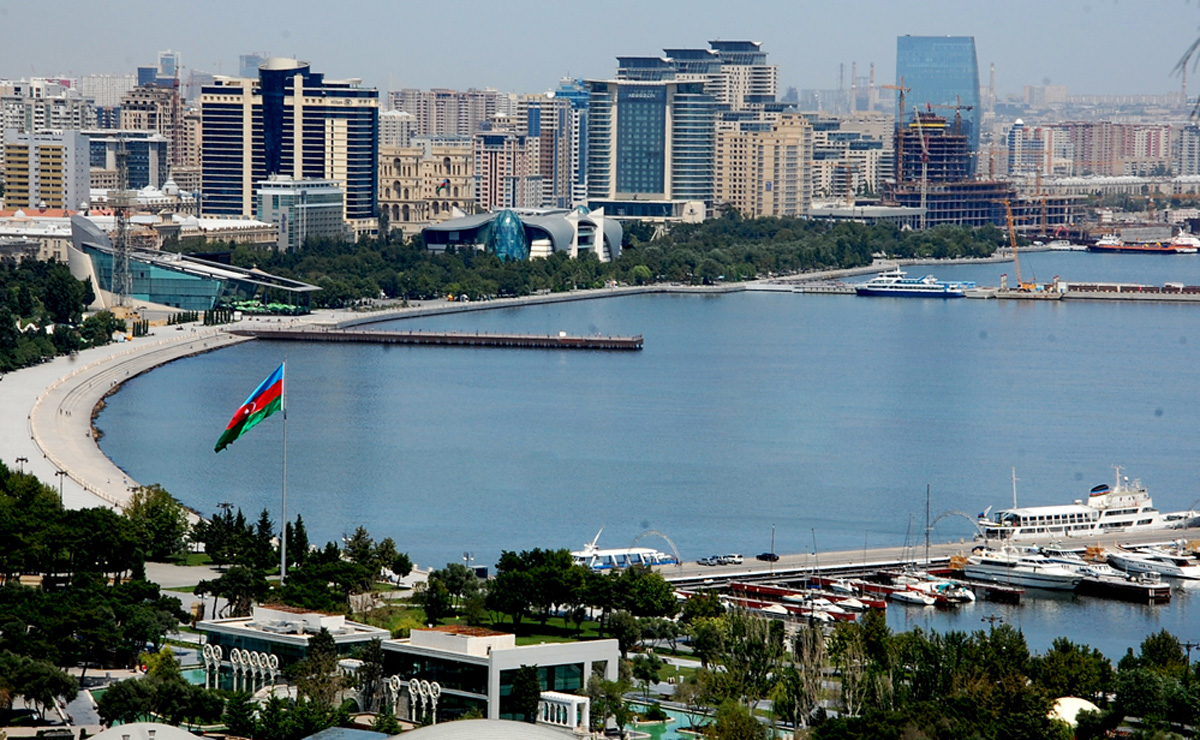BAKU, Azerbaijan, Mar. 29
By Eldar Janashvili - Trend:
Azerbaijan’s fight with the impact of global shocks by using its resources will help the country get out of the situation smoothly, Vusal Gasimli, executive director of the Azerbaijani Center for Economic Reforms Analysis and Communication said, Trend reports referring to the Center.
“During the post-crisis period, this will help Azerbaijan take a more favorable position on the world stage compared to other countries,” the expert said.
“The economic shocks and the pandemic negatively affect the growth rate of aggregate supply and demand at the global level, which partially affected Azerbaijan,” Gasimli added.
Nevertheless, the expert expects that GDP growth in Azerbaijan in the first quarter of this year will be possible in real terms.
“In particular, the non-oil industry and crop production, as well as information and communication services will be the main drivers of this growth,” the expert said.
“Nevertheless, amid a sharp drop in oil prices in the first quarter of this year, a decrease of the GDP deflator which has been observed since 2017 is predicted, and it will reach its historical minimum in the first quarter of this year that will also negatively affect the nominal cost of production and services in the country,” Gasimli said.
“A decrease in the GDP deflator also negatively affects the balance of payments, international investment positions and level of savings,” Gasimli said.
"Two tasks are relevant in the macroeconomic policy in the current global economic crisis, namely, the prevention of the pandemic and prevention of a recession,” the expert said. “The Azerbaijani government intends to minimize possible losses by using all kinds of tools not only to prevent the pandemic, but also to support the market participants."
Gasimli stressed that some European countries, trapped by liquidity and approaching zero at the interest rate, were forced to attract the funds in the fight against the crisis by using "money from a helicopter", Eurobonds and the so-called "corona bonds".
“Moreover, 80 developing countries rely on IMF support,” the expert said. “The G20 countries decided to allocate $5 trillion to support those in need to combat the crisis. Of course, there's no such thing as a free lunch."
Meanwhile, the expert reminded that on the basis of huge foreign exchange reserves, a strong fiscal position and a low level of external debt of Azerbaijan, Standard and Poor's kept the country's international credit rating at BB +.
“Standard and Poor's thinks that if under the influence of global shocks, a deficit will occur in Azerbaijan due to the current operations and capital, the volume of reserve assets will allow financing the deficit,” Gasimli said.
“However, economic downturns will occur both globally and nationally,” Gasimli said. “The main task of the countries is to minimize losses, keep external debt under control and better prepare for the post-crisis period.”
Gasimli emphasized that the slowdown in supply growth in Azerbaijan is mainly connected with an external shock rather than with a change in the conditions for business development.
“In other words, when the influence of external shocks reaches a culmination and begins to weaken, the Azerbaijani economy will also restore its development in accordance with the business cycle,” the expert said. “As for the global economy, growth rates slowed down even before the outbreak of coronavirus.”
"According to Keynesian economics theory, the government’s intervention during a crisis is required,” Gasimli said. “One of the conditions is an effective and efficient support program. However, according to the Ricardo-de Viti-Barro equivalence theorem, the current debt-based expenses of the governments increase the tax burden to enable repayment of this debt in the future. Given both approaches, Azerbaijan is in a more favorable position in combating the crisis.”
“In other words, the country's government today supports the economy on its own and the citizens will not be forced to return it through taxes tomorrow, as such a socio-economic model has been created in Azerbaijan in which the interests of the population prevail,” the expert added.






